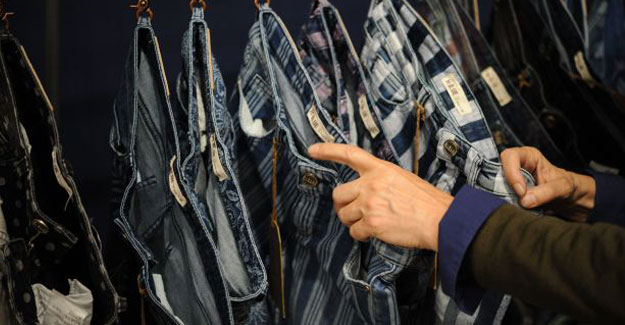
Sustainable Denim With ITEMA’s iSAVER®
Itema, worldwide leading manufacturer of advanced weaving solutions was at Denim Première Vision, Milan with the mechatronic device iSAVER® that, unique in the sector, allows denim weavers to save up to 1,000 kg of cotton per loom per year, and around 20 million of litres of water. An innovation 100% made-in-Italy, iSAVER® is already present in the biggest denim weaving mills in China, Vietnam, Turkey, Egypt, Italy and South America. Denim is one of the most popular fabrics in the world, with 3.5 billion garments produced every year. In 2020, the global denim market was worth US$ 21.8 billion. The denim manufacturing process, which absorbs about 35% of world cotton production has a strong environmental impact. In fact, it is estimated that 3,800 litres of water and 18.3 kWh of electricity are needed to make a single pair of jeans, generating emissions of 33.4 kg of CO2 during the entire lifecycle of the product. “The entire textile supply chain is constantly looking for ideas and solutions, to improve the sustainability of production processes, by innovating technologies and processing systems to reduce waste, water and electricity consumption," stated Ugo Ghilardi, CEO, Itema Group. “With iSAVER® we have brought an excellent solution to the market, which makes the difference because it allows denim weavers and fashion brands to offer a finished product with a much lower ecological footprint. We are the only textile machinery manufacturer to participate as an exhibitor at Denim Première Vision precisely by virtue of the uniqueness of our technology and the contribution it makes to the production of sustainable denim". iSAVER® eliminates the waste selvedge on the fabric left-hand side by inserting the weft without the need of additional yarns, thus significantly reducing raw materials and water wastage. The device has been designed and developed by Itemalab®, the Itema Group company dedicated to product and process innovation for the whole industrial sector. Located inside the Kilometro Rosso Innovation District in Bergamo, the company employs around 70 engineers and specialists. Production of sustainable denim is on the rise Almost every responsible denim brand is making efforts to move to ever more sustainable denim. Levi’s is planning to launch a version of its popular 501 jeans made from a mix of organic cotton and a material that blends old denim, industrial waste and wood pulp. Wrangler is using sustainable denim in its upcoming fall collection. The iconic jeans and casual wear brand is collaborating with the Infinited Fiber Company to combine Infinna— “regenerated” fibres made with cellulose and recycled textile waste — with Wrangler’s in-house foam dye technology, Indigood. Overall, this means less virgin cotton, a 99% reduction in wastewater, and 60% less energy use during the dyeing process, while Infinna fibres are fully biodegradable. “Wrangler is committed to continually pushing the sustainability standards for denim,” says Dhruv Agarwal, Senior Director of Innovation, Sustainability, and Product Development at Kontoor Brands, the parent company of both Wrangler and Lee. Kontoor Brands announced its first-ever global sustainability goals less than one year ago, in the midst of the record-breaking and climate change-caused Western US wildfire season. According to Good On You, which assesses brands for their sustainability and business practices, Wrangler is rated “not good enough,” with just one out of five points for the planet.
Textile Excellence
If you wish to Subscribe to Textile Excellence Print Edition, kindly fill in the below form and we shall get back to you with details.













